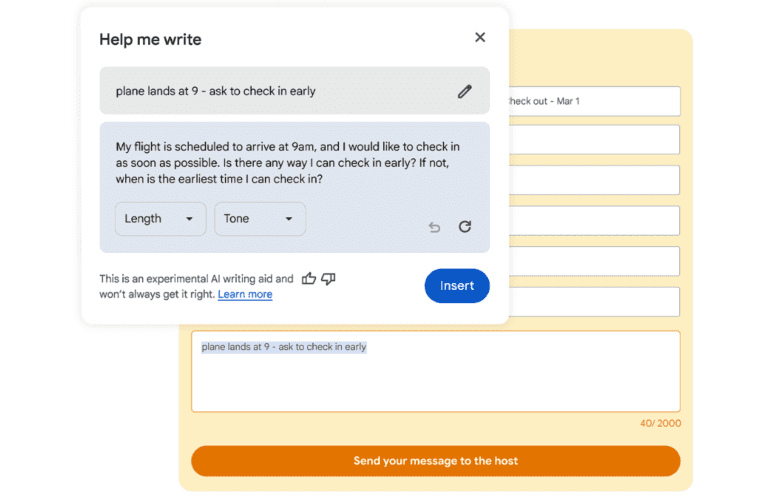TL;DR:
- Google Chrome introduces Gemini-powered AI writing tool for web users.
- Available in Chrome’s experimental phase, users can activate it through settings.
- The tool enables original composition and text rewriting, akin to Gmail’s “Help me write” feature.
- Contextually aware, it tailors suggestions based on the webpage being visited.
- Subscribers to Gemini Advanced won’t access enhanced writing models through this tool.
- Utilization involves data transmission to Google, governed by its privacy policy.
Main AI News:
Google Chrome rolls out an innovative AI writing tool today, leveraging the power of Gemini technology. This Gemini-driven tool, fundamentally akin to Gmail’s established “Help me write” feature, has been expanded to cover the entirety of the web, harnessing Google’s latest Gemini AI models. Initially unveiled in January, this tool is currently undergoing an experimental phase, necessitating explicit user activation.
To begin, users can navigate to the Chrome settings menu and locate the “Experimental AI” page. Here, alongside the new writing feature, users can activate Google’s automatic tab organizer (whose utility and intelligence remain to be fully proven) and the redesigned Chrome theme manager. Presently, the AI writing tool is exclusively available in English across Windows, Mac, and Linux platforms. Once activated, users can simply right-click on any text field and select “Help me write,” enabling the composition of original content and text rewriting using Gemini.
According to a Google spokesperson, subscribers to Gemini Advanced won’t receive access to an enhanced writing model through this tool. Designed primarily for short-form content like emails or support requests, a larger model might not substantially improve user experience in these contexts.
A notable feature of this tool is its contextual awareness, tailoring suggestions based on the user’s current webpage. Adriana Porter Felt, Google’s engineering director, elaborates, “The tool will understand the context of the webpage you’re on to suggest relevant content.” For instance, when composing a review for running shoes, Chrome will extract key features from the product page, enhancing recommendations for potential shoppers.
Similar to Gmail’s “Help me write” feature, users can easily adjust the length and tone of the results that are generated.
It’s crucial to recognize that utilizing this service involves the transmission of text, content, and webpage URLs to Google, subject to its existing privacy policy. Google explicitly states that this data aids in refining the feature, encompassing generative model research and machine learning technologies, with human oversight included in the review process. Caveat scriptor.
Conclusion:
Chrome’s integration of an AI writing tool fueled by Gemini technology signifies a significant advancement in content creation capabilities. This development not only enhances user experience within the Chrome ecosystem but also sets a precedent for AI-driven innovations in the broader market. As businesses increasingly rely on digital communication and content creation, the ability to leverage AI for efficient and contextually relevant writing will become a competitive necessity. This move by Google underscores the growing importance of AI in shaping the future of productivity tools and highlights the need for businesses to embrace such advancements to stay competitive in a rapidly evolving market landscape.

